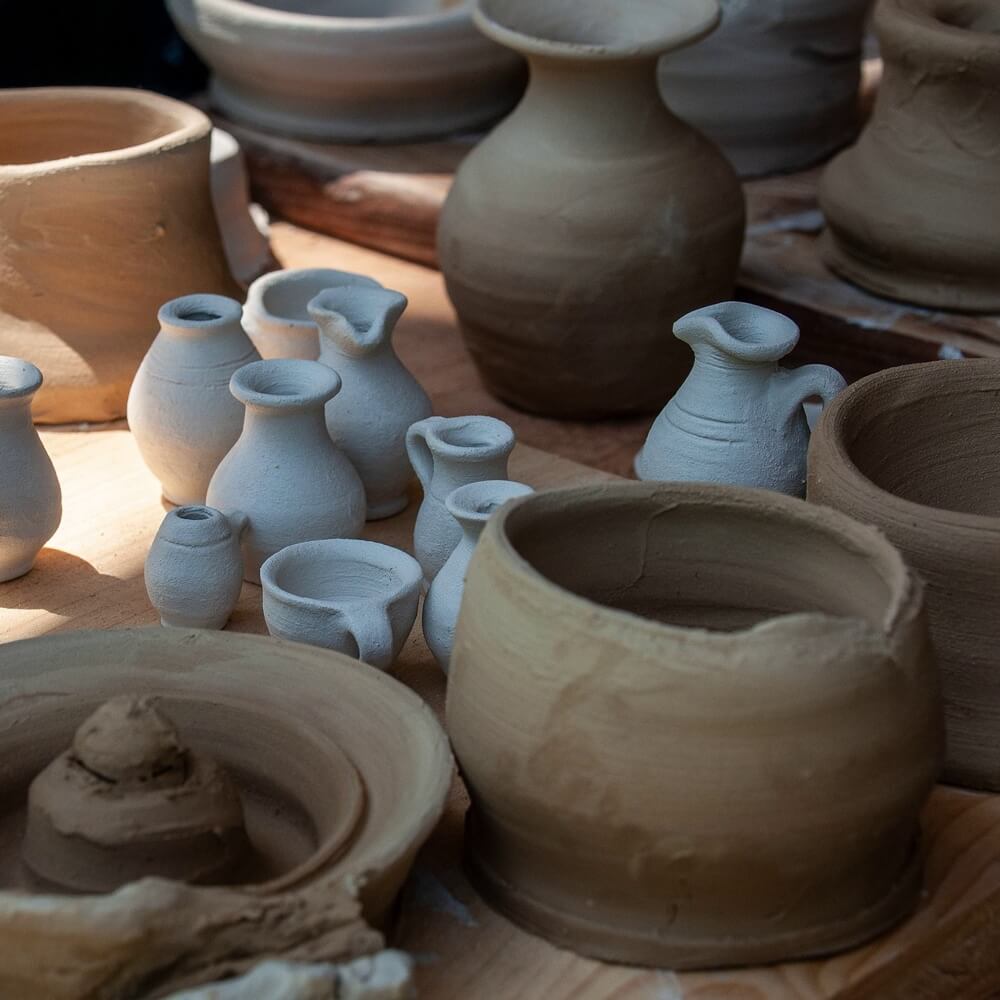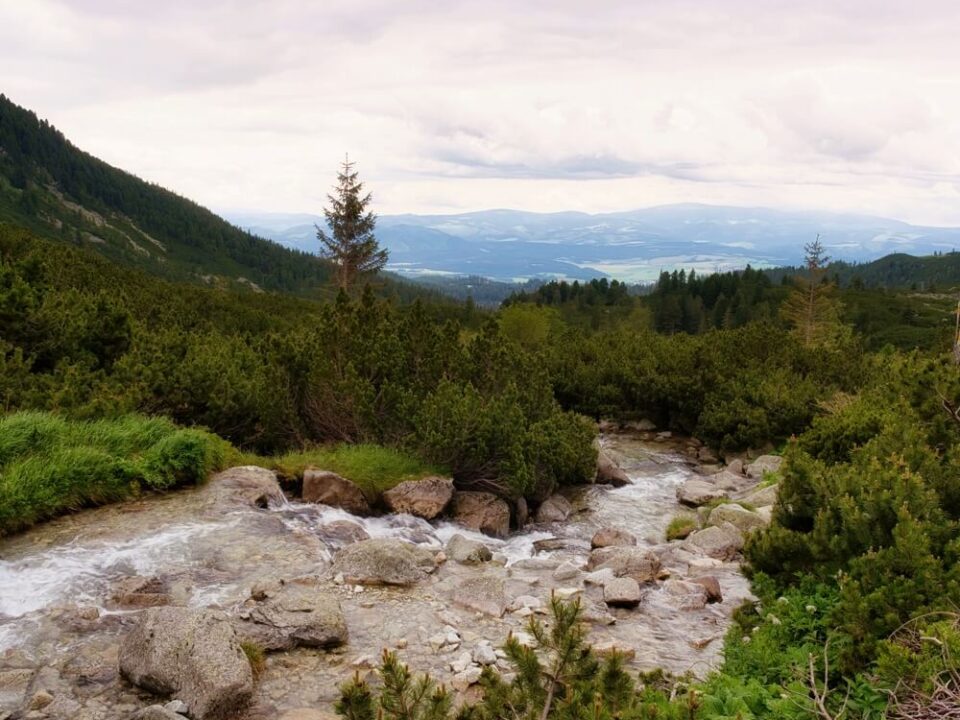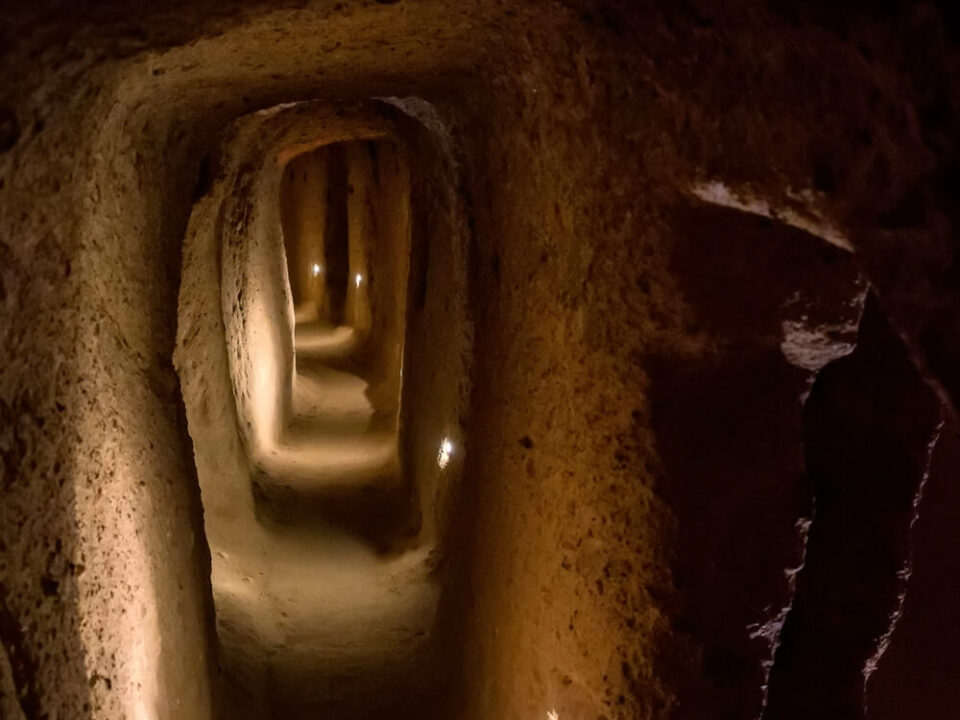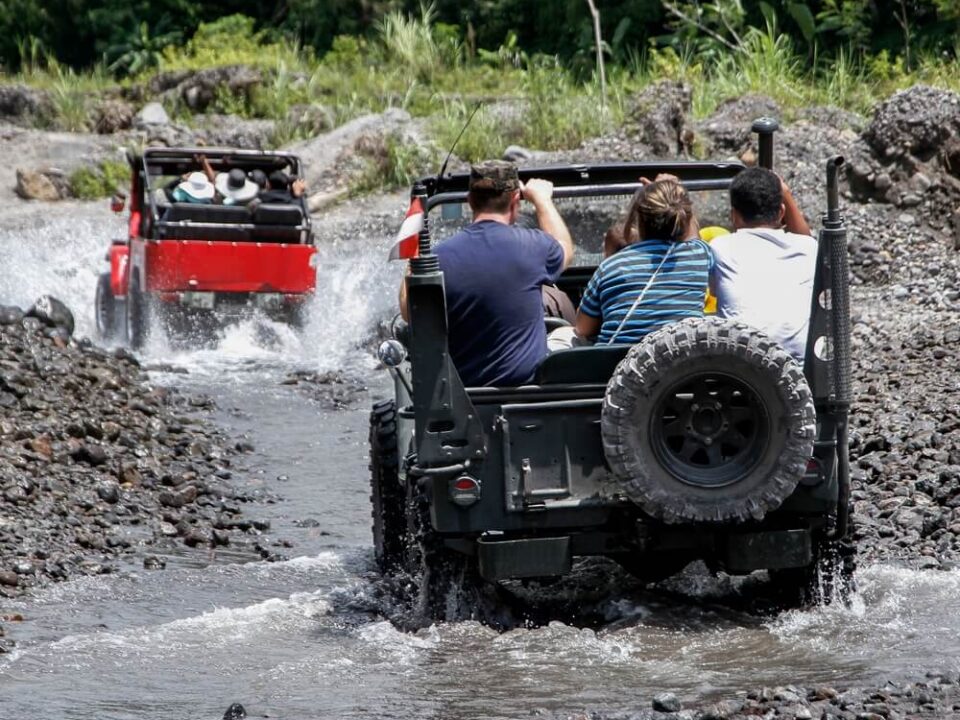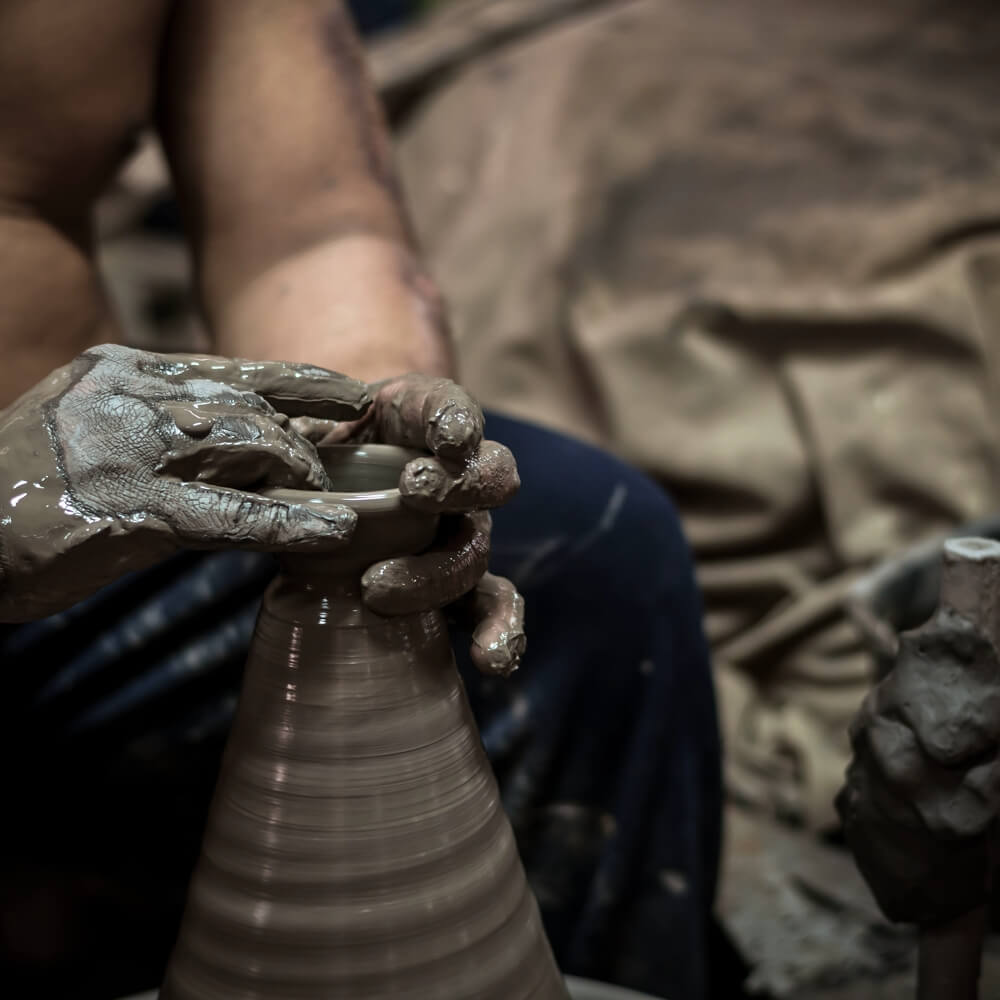
Historical & Cultural Origins of Avanos Pottery
Avanos is famous for its fertile Kızılırmak (Red River) soil and thousands of years of pottery tradition. This craft, passed down from generation to generation by masters living in Avanos, spans from the Hittites to the Seljuks, and from the Ottomans to the present day. Avanos pottery workshops offer visitors the chance to experience a historical legacy and create their own handcrafted pieces. The region's unique red clay, processed with rock salt, becomes soft and moldable, providing participants with an unparalleled learning experience.
Workshop Types & Processes
In Avanos, you'll generally find three main types of pottery workshops:
Wheel Throwing Pottery Workshop:
-
- Participants create their own designs on a spinning potter's wheel, guided by an experienced master.
- Masters demonstrate the correct amount of clay, speed control, and hand positioning for this technique, which requires skill and balance.
Hand Building:
-
- Free-form pottery is created by rolling, flattening, and joining clay pieces.
- This method is ideal for porcelain, bowls, mugs, or decorative items, and suitable for young children and beginners.
Glazing & Decoration Workshop:
-
- Natural glazing techniques are applied to dried pottery.
- Surface decoration methods such as painting, drawing, incising, and embossing are learned, resulting in personalized pieces with special patterns and Cappadocian motifs.
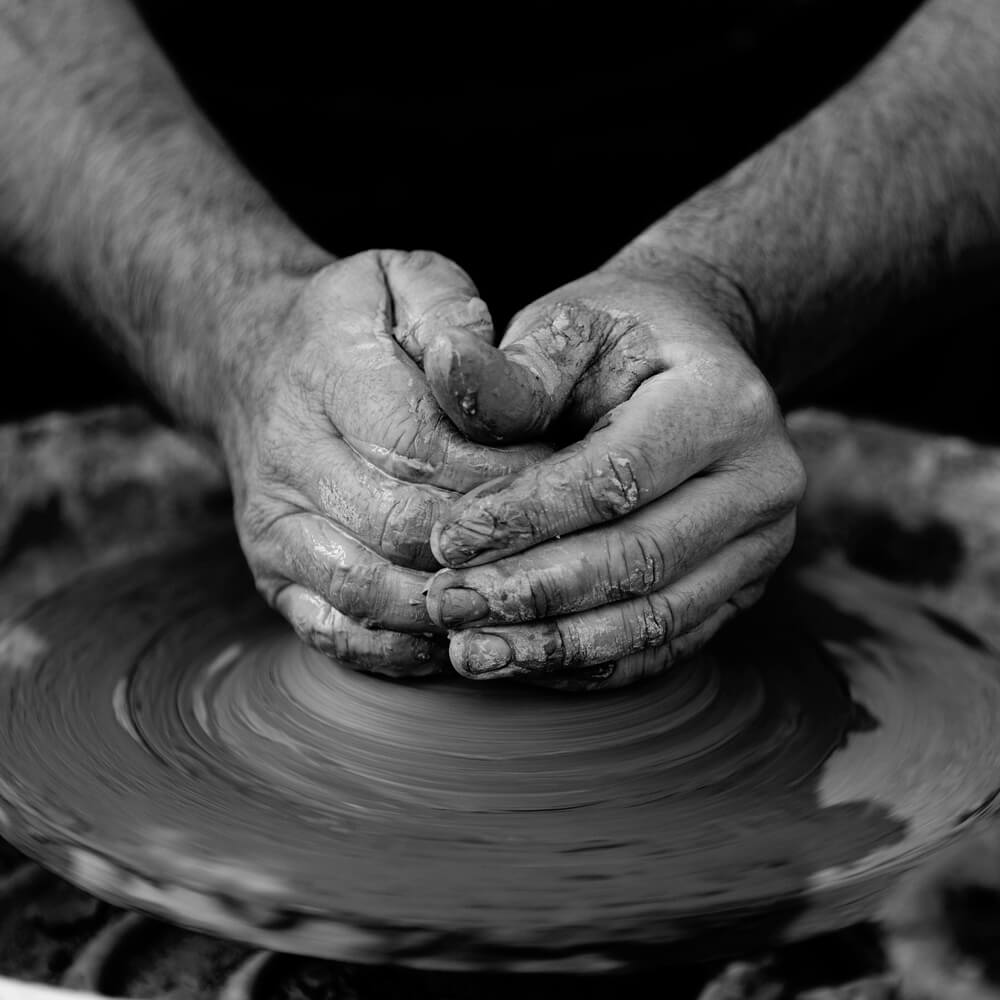
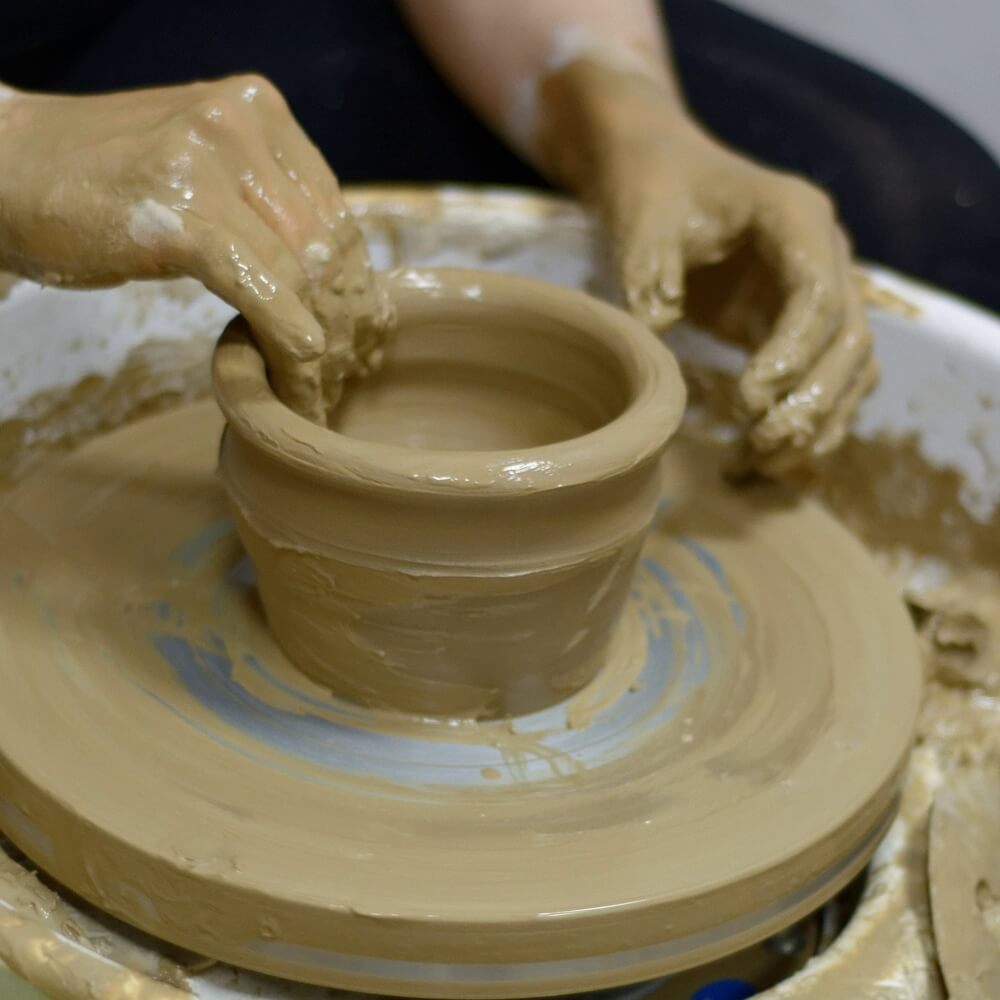
Workshop Preparation and Tips
Clothing and Protection:
-
- Clay and water contact are inevitable; wear old clothes or an apron.
- Tie back long hair and remove jewelry like rings or watches.
Photos and Videos:
-
- Choose a waterproof case or pouch to protect your phone.
- At the end of the workshop, ask your master for a few poses to capture the experience.
Motivation and Design Preparation:
-
- Draw simple sketches or prepare an inspiration board before you go.
- Traditional Cappadocia motifs (fairy chimneys, grape clusters, historical pen work) add color to your design.
Health and Comfort:
-
- Do wrist, back, and lower back exercises, depending on whether you'll be working sitting or standing.
- If you have a clay dust allergy, be sure to wear a mask.
Pottery Making Stages
Clay Preparation
In the workshop, clay arrives in large blocks. Participants knead it with molds and clean water to remove air bubbles, ensuring the material is homogeneous and pliable.
Centering on the Wheel
The ball of clay is placed precisely in the center of the spinning wheel. The master teaches how to center the clay and form a smooth cone using hand and finger positions.
Shaping
- Making plates and bowls: Pressing inwards with thumb and forefinger support.
- Making mugs and vases: Slowly lifting upwards and expanding.
- Adding handles and spouts: Hand-formed pieces are attached with liquid clay (slip).
Drying and Glazing
- After the initial drying phase, the pottery is ready for **bisque firing** before glazing.
- In the second workshop stage, participants learn colored glazing and decoration techniques.
Firing Process
- In a professional workshop, participants' pieces are fired by masters at high temperatures (900–1,200 °C). This process can take 24–48 hours. Your piece gains a **glossy surface** and **durable structure** once removed from the kiln.
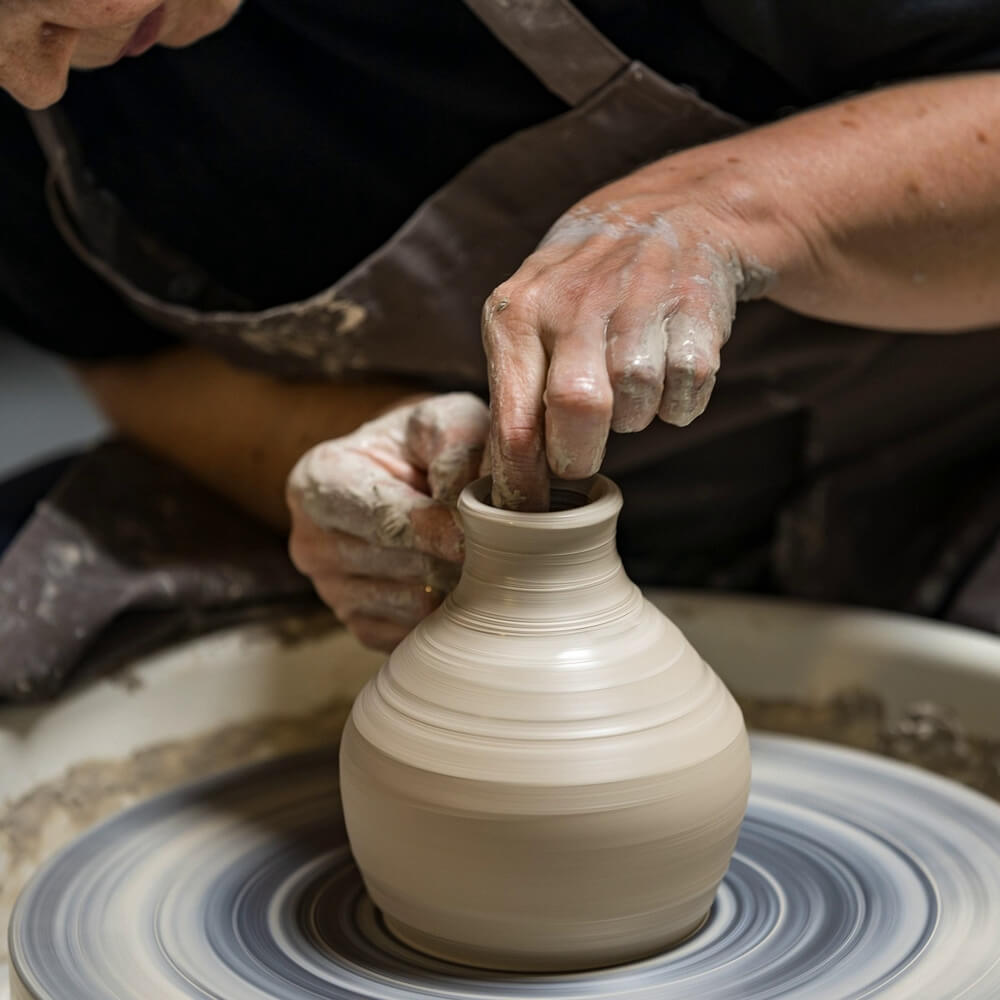
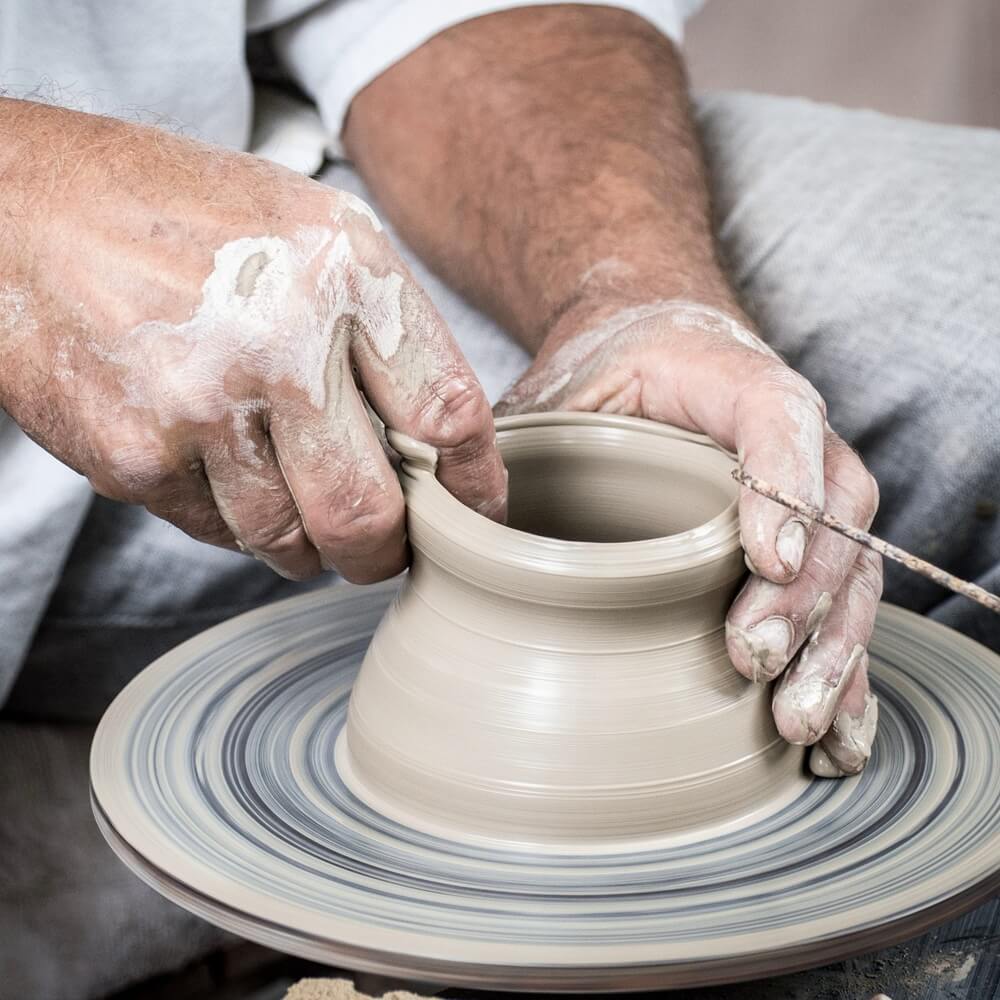
After the Workshop: Delivery & Care of Your Creations
- Delivery Time: Your creations will be ready within 1–2 weeks, considering the firing and cooling time.
- Shipping & Packaging: Workshops offer packaging services with special boxes and foam to ensure damage-free delivery. Review domestic or international shipping options.
- Care Recommendations: Pottery items like mugs and plates can be washed in a dishwasher; protect decorative pieces from moisture and direct sunlight.
Frequently Asked Questions (FAQs)
What age is suitable for the workshop experience?
Generally, participants aged 6 and above are accepted. Hand-building workshops are ideal for younger children, while wheel-throwing workshops require more attention and coordination.
Can I participate if I have no pottery experience?
Absolutely yes! Masters provide step-by-step guidance from beginner to advanced levels. Basic manual dexterity is sufficient.
Can I fire my own creation?
Most workshops leave the firing process to the masters due to the high heat and professional kiln requirements. If you have your own kiln, you can adjust the drying time and temperature values of the pottery according to the recipes you get from your master.
Can I get a refund if I cancel the workshop?
Depending on the reservation conditions; generally, free cancellation is applied 48 hours in advance, with a 50% fee deduction within the last 24 hours. Confirm the exact conditions when selecting your workshop.
Conclusion & Recommendations
An Avanos pottery workshop is not just a tourist activity; it's a unique experience that integrates with the local culture, allows you to discover your creativity, and provides you with your handmade labor as a souvenir. With early booking, experienced masters, and proper preparation, the piece you create in this workshop will be one of the most valuable memories of your Cappadocia trip. Choose your workshop now and enjoy the pleasure of creating your own pottery in Avanos!
